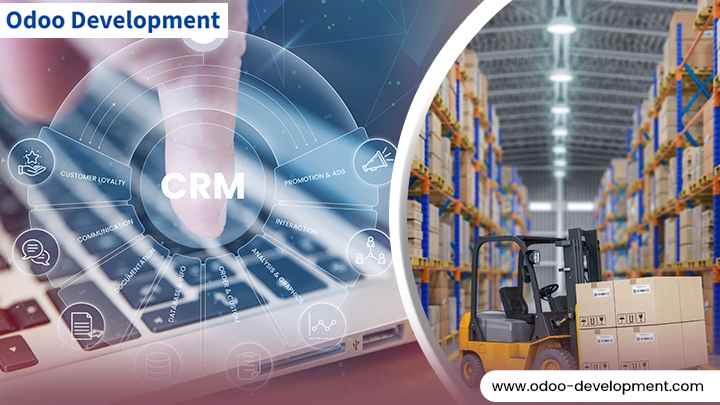Why Hiring an Odoo Developer on Demand Is the Smart Choice for Agile Businesses

Today's businesses are digital and data-driven, which means enterprise resource planning (ERP) systems are necessary when managing operations, data, and workflows efficiently. Of all the ERP systems available, Odoo is an impressive option. With its flexibility, scalability, and multitude of applications, Odoo has enabled businesses to manage or improve their business processes. With Odoo becoming the chosen software, the demand for development resources increases and gives rise to a potentially prominent service model: the Odoo developer on demand.
This article will examine what an Odoo developer on demand means and how it differs from traditional development models, and why Odoo developer on demand can be attractive to SMEs to large businesses.
What is an Odoo Developer on Demand?
An Odoo developer on demand is a project-based hire of a professional developer with Odoo platform expertise. Rather than a long-term contract or in-house job, this model is a means for businesses to access skilled, development resource support for limited periods of time, may it be specific development projects, a short contract, or even hourly work.
This is not unlike the gig economy model; this is an approach for the technical services industry and a technical service. This article involves development resources in areas including ERP customization, module development, third-party integration, and performance improvement/optimization.
Why Businesses Are Choosing On-Demand Odoo Developers
There are many reasons for the increasing popularity of the on-demand model.
1. Cost-Effective
For many organizations, hiring a full-time in-house developer is not an option if they only occasionally update or add features to their Odoo instance. When hiring someone on-demand, you do not have to worry about salary commitments, office space, or other costs associated with having a full-time employee.
2. Access to Talent Around the Globe
The Odoo ecosystem is global, regardless of where the client is located in the world. Odoo developers and consultants are employed in part-time and full-time capacities, but mostly provide services off-site and remotely. To capitalize on the model, businesses are free to source from a plethora of talent based on their project needs, time zone preferences, and budget.
3. Flexibility
On-demand Odoo developers can be hired for a few hours or days, or they can be hired for the duration of the task at hand. This is advantageous for businesses or organizations that only sporadically need development work or rely on project-based workloads.
4. Scalability
On-demand hiring easily allows organizations to adjust their level of development resources consistent with their changing business needs. For example, if new products are being released to their customers, the organization may require ramped-up development work for a designated period of time, but will likely have a maintenance mode where development support is minimal.

Key Use Cases for Odoo Developers on Demand
It is ideal to hire an Odoo developer on demand in these circumstances:
Module Customization: A custom approach to existing modules like Sales, CRM, Inventory, and HR to meet your unique workflows.
New Module Development: To create new applications for functionality not available in Odoo.
Third-party Integrations: To connect Odoo with external tools, payment gateways, logistics systems, or eCommerce solutions.
Bug Fixing & Support: Anywhere ongoing support is needed to fix technical issues that are beyond your on-staff technical expertise, and corrective action is needed to intervene quickly.
Data Migration: If your organization has data residing in your legacy systems that needs to be migrated securely into Odoo during implementation or upgrades.
What to Look for in an On-Demand Odoo Developer
Finding the right developer is crucial to a successful project. Here are some important factors to keep in mind:
1. Experience with Odoo Versions
The developer should have experience with the version of Odoo you are using. Odoo has changed dramatically across its versions, so familiarity with your version is important.
2. Understanding Business Workflows
An Odoo developer should not just be technically proficient, but they also should have an understanding of business processes. That understanding can also ensure that any solutions provided are relevant to operational objectives.
3. Code Quality and Documentation
If the code is of high quality and maintainable, it can be recycled indefinitely. Developers should also provide documentation as the basis for modifications or any debugging issues in the future.
4. Follow Security and Compliance
You want a developer who understands any relevant data security standards and compliance standards in your industry, especially if they are working with sensitive customer or financial data.
5. Communication and Responsiveness
Since the expectation is that the developer will be available on demand, it’s important to be clear on the communication channels as well as the acceptable response times to ensure efficient collaboration.
Challenges of On-Demand Hiring and How to Overcome Them
While hiring on-demand developers can offer very significant benefits, there can also be problems:
Reliability: Because the developer does not become a full-time member of the team, the availability of the person for urgent requests can be difficult. Service level agreements (SLAs) can help with this issue.
Knowledge Transfer: Due to their temporary nature, the developers may not know internal systems very deeply, and creating thorough onboarding documentation can help bridge this issue.
Coordination: Coordinating remote developers requires clear project scope, timelines, and continual check-ins.
Most of the issues can be easily resolved with project management tools and good communication practices.

Future Trends: ERP Development as a Service
As more and more organizations shift to hybrid or fully remote work models, it stands to reason that there will be increasing investment in the need for flexible and scalable resources for ERP development. This is where 'ERP as a service' is beginning to evolve, where not only are you contracting the software, but the development resources themselves as a service. Since Odoo is open source and modular, the model fits well into this trend.
By engaging an Odoo developer on demand, organizations retain flexibility, minimize costs, and ensure that they are not over-committing the organization's resources in periods of low development activity.
Conclusion
The Odoo developer on demand model presents a great, scalable solution to managing ERP customization and support. If you are implementing Odoo for the first time or optimizing a previous installation, this flexibility and cost-driving approach should play well into current business practice. As with every service engagement, your success in this model will depend upon employing a good developer, setting clear expectations, and sustaining clear communication.
By understanding the strengths and weaknesses of employing the Odoo developer on-demand model, businesses will be better able to make decisions that support short-term flexibility and long-term growth.
Frequently Asked Questions
1. What does an on-demand Odoo developer usually do?
An on-demand Odoo developer will provide various services, including customizing existing modules, developing new features and integrating third-party tools, fixing bugs, and enhancing the performance of the system tailored to the needs of the client.
2. How do I know if an on-demand Odoo developer is suitable for my business?
If your business does not require a full-time person to support development and only has occasional or project-based needs, then you may benefit from the model of having on-demand developers, which can be more cost-effective and flexible for your business.
3. Are on-demand Odoo developers suitable for extended projects?
Yes, many businesses engage Odoo developers on-demand for longer periods and increase their hours or create an ongoing arrangement, especially when flexibility is still most important.
4. What should an on-demand developer agreement include?
An on-demand agreement should generally include the scope of work, hourly/daily rates, deliverables, communication methods, response times, intellectual property clauses, and clarify expectations for both parties.
5. Am I able to go from an on-demand model to full-time later?
Yes, of course. Many businesses start with on-demand developers to see if their business and project requirements are a good fit, then go in the direction of full-time hiring or a longer-term contract later.